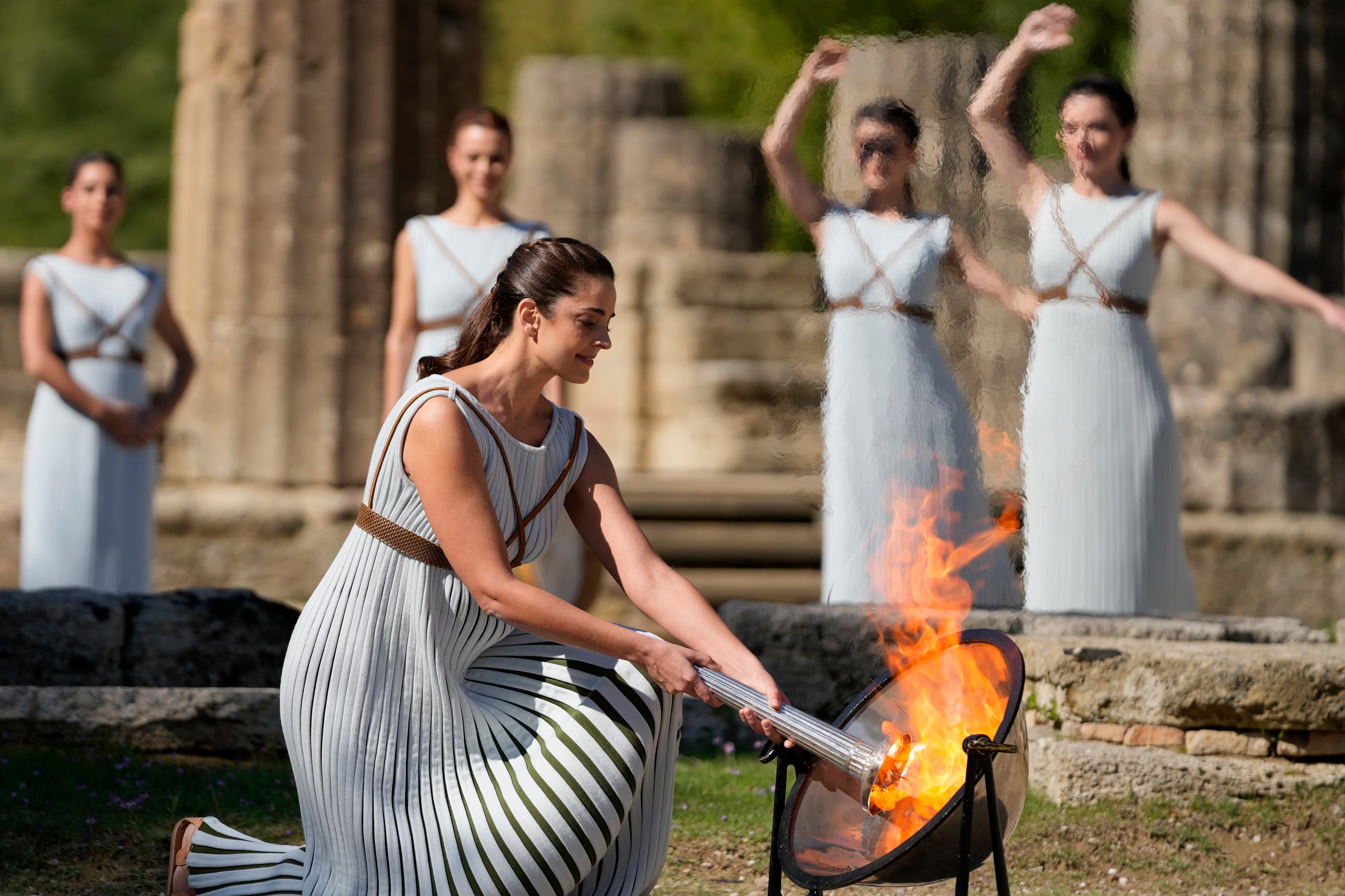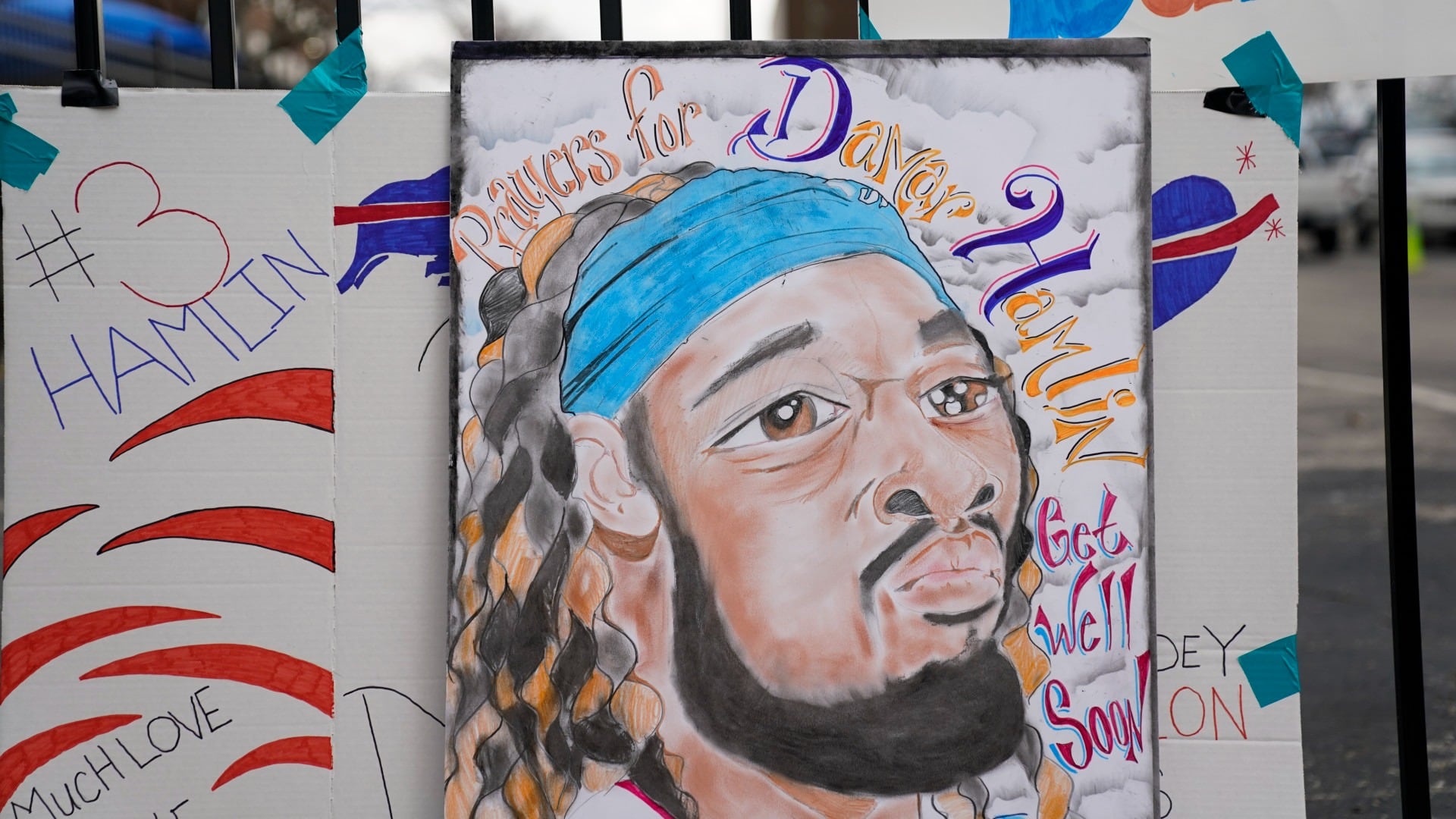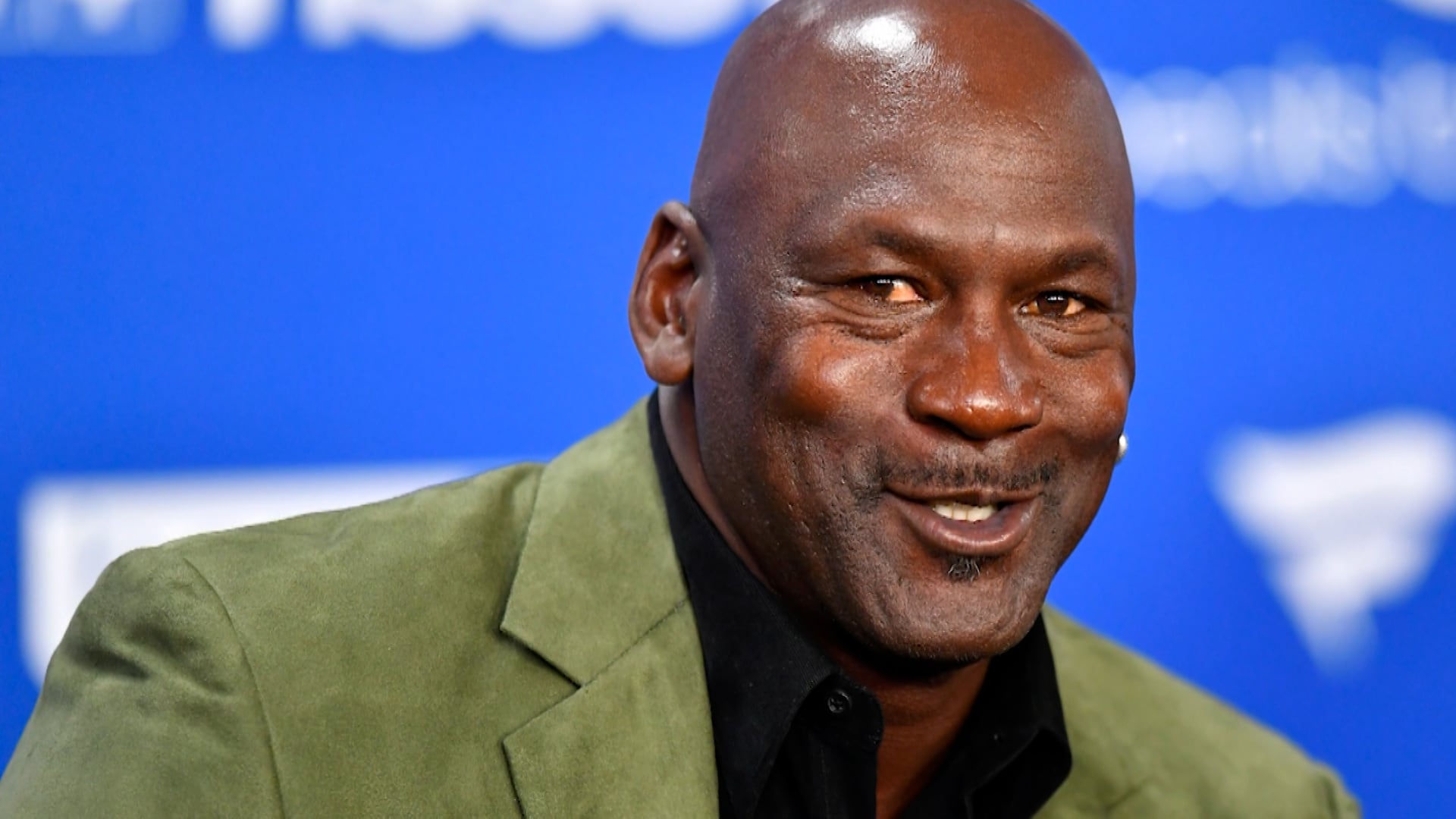A priestess prays to a dead sun god in front of a fallen Greek temple. If the sky is clear, a flame spurts that will burn in Paris throughout the world’s top sporting event. Speeches ensue.
On Tuesday, the flame for this summer’s Paris Olympics was lit at the birthplace of the ancient Olympic Games in southern Greece in a meticulously choreographed ceremony.
It will then be carried through Greece for more than 5,000 kilometers (3,100 miles) before being handed over to French organizers at the Athens venue used for the first modern Olympics in 1896.
Here’s a look at the workings and meaning of the elaborate ceremony held among the ruins of Ancient Olympia ahead of each modern Olympiad.
COULDN'T THE FRENCH JUST LIGHT IT IN PARIS?
Couldn't the Academy Awards just be announced in a conference call?
The pageantry at Olympia has been an essential part of every Olympics for nearly 90 years since the Games in Berlin. It's meant to provide an ineluctable link between the modern event and the ancient Greek original on which it was initially modelled.
Once it's been carried by any means imaginable to the host city — it's been beamed down by satellite, lugged up Mount Everest and towed underwater — the flame kindles a cauldron that burns in the host Olympic stadium until the end of the games. Then it's used for the Paralympics.
SO HOW'S IT LIT?
An actor playing an ancient Greek priestess holds a silver torch containing highly combustible materials over a concave mirror. The sun's rays bounce off every inch of the burnished metal half-globe and come together at one extremely hot point, which ignites the torch.
This happens inside the archaeological site at Olympia, before the ancient temple of Hera — wife of Zeus, king of the Greek gods, whose own ruined temple lies close by.
The flame is eventually used to light the first runner's torch — champagne-colored this year for France — and a long relay through Greece leads to the April 26 handover at the Panathenaic stadium in Athens.
NEED IT BE SO COMPLICATED?
Flames and sandals make for an impressive spectacle, and while the priestess' largely tongue-in-cheek prayer to Apollo might not be answered, the parabolic mirror works well.
The idea was the result of Greek-German cooperation ahead of the 1936 Olympics in Nazi Germany, which were heavy on fanfare — and swastikas. It was based on a mechanism mentioned by ancient writers in a non-Olympic context, and served the desire to blend the games of antiquity with the modern revival.
The 1936 innovations included a torch relay all the way to Berlin, and have been followed, with modifications, ever since. An initial idea to do the relay flame in hollow plant stalks — a nod to the Greek myth of Prometheus who stole fire from the gods — was ditched as impractical.
DID THIS HAPPEN AT THE ANCIENT GAMES?
No. But then modern athletes don't compete naked, or, when victorious, receive olive wreaths and the right to a marble statue in their name — and, for three-times winners, in their actual likeness.
Also, there's no brief cessation of warfare to allow the modern games to go ahead, women not only attend but compete as well, and rich sponsors — or heads of state — don't reap the glory for their chariot teams' wins.
According to ancient Greek tradition, the games of antiquity, held every four years in honor of Zeus, started in 776 B.C. They were the most important of the major Greek sporting festivals, where events included running, wrestling and horse racing. Up to 40,000 spectators could attend.
Like in most preindustrial societies, life in ancient Greece was deeply physical and a well-exercised body was seen as the mark of a gentleman.
The games continued, with minor blips, until the new Christian authorities in Greece banned them as part of the reprehensible pagan past, in A.D. 393.
COULD ANYTHING SPOIL THE SHOW?
Rain. Heavy cloud cover. Then the mirror doesn't work. But ceremony organizers in Olympia hold several rehearsals in the days leading up to the official lighting, which provide a backup flame should the big day prove sunless. That's what ended up happening on Tuesday, when the skies were cloudy.
Potential protests are a worse headache. Twice this century — during the lighting ceremonies for the Beijing Summer and Winter Games — human-rights activists disrupted the ceremony inside the fenced and heavily guarded archaeological site. Even after the embarrassment of the first incident in 2008, Greek police were unable to anticipate and prevent the second, 14 years later. There was no incident Tuesday.
The flame-lighting, with its broad TV coverage — although the official stream shies from showing any form of protest — is a magnet for activists who want to grab headlines. And even if ancient Olympia can, in theory at least, be efficiently guarded, the route of the torch relay through Greece is too long to be protest-proof.
The 2008 incidents at Olympia and abroad led to the scrapping of torch relays outside Greece and the host country.
Further along the road, while the torches are designed to stay lit, there have been hitches in the past. During the relay for the 2014 Sochi Games, wind blew out the torch, which was sneakily rekindled with a lighter. The same quick fix was used at Montreal in 1976, when rain extinguished the Olympic cauldron.













